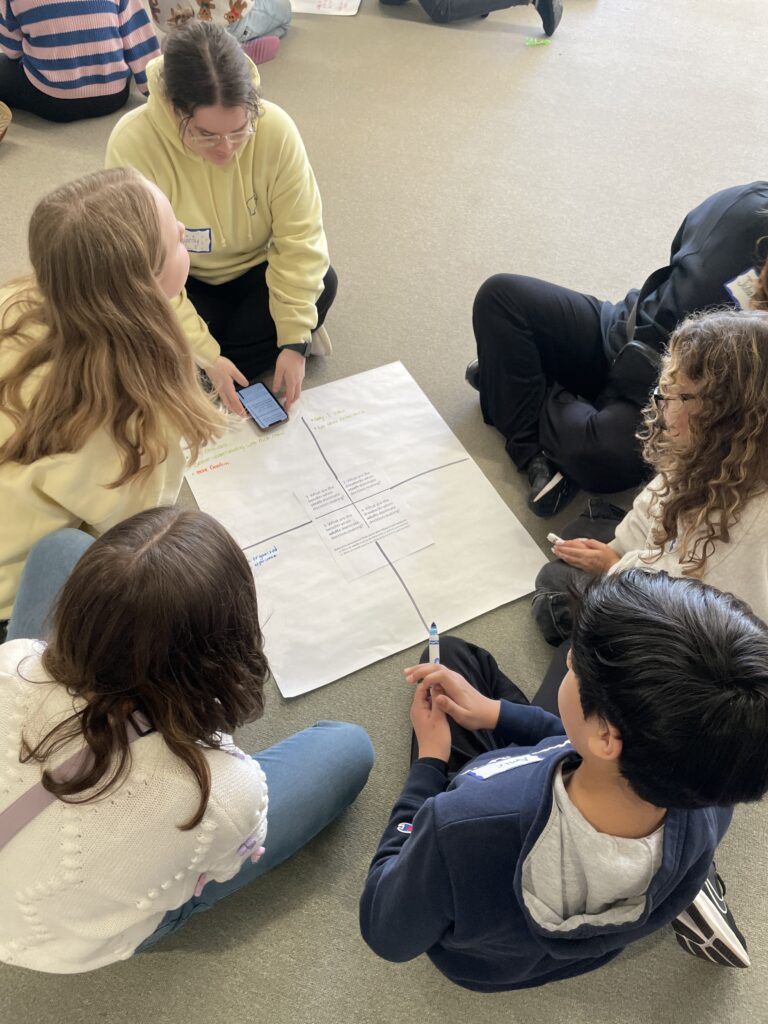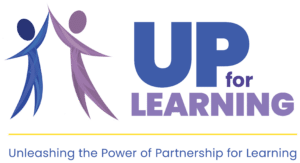
What does it look like when a whole school district is engaged in YPAR (Youth Participatory Action Research)? Check out Methuen Public Schools in Massachusetts to find out!
UP for Learning has been supporting five school teams across Methuen as they dig into their district’s data and lay the groundwork for lasting change in their schools. The district has YPAR teams representing Methuen High School and all four grammar schools in the district. When all these teams get together for a retreat with UP, the room is packed and the energy is high – There are over 80 team members total!
UP for Learning’s work with Methuen Public Schools began earlier this year, when the district received grant funding from the Massachusetts Department of Elementary and Secondary Education (DESE) with the goal to “elevate student voice in order to strengthen safe, supportive and healthy learning environments.” Working towards this goal through a YPAR process is an intuitive approach for the district, which already gathered detailed data from students and families through the Views of Climate and Learning survey project (VOCAL).
At their first retreat in February, the five newly-formed teams spent time building relationships in their teams, and connecting with students from different schools. Through a series of activities, UP staff introduced the YPAR Trailmap and outlined the work that the teams would be completing this spring.
A key element of the YPAR process is exploring and analyzing data, and the Methuen teams had a jump start in reviewing their own schools’ VOCAL data during their first retreat: In one activity, members were prompted to estimate the percentage of students in their district who answered a particular way on different survey questions. For example, members were asked to estimate the “percentage of 10th graders who said it was true that they have a friend they can rely on to help them when they’re feeling down.” The participants then lined up on a spectrum (from 0% to 100%) around the room to indicate what they thought the data would say. After some conversation, the number was revealed (90% in this example), with the actual data confirming some members’ intuition and challenging others. The ensuing dialogue allowed the group to reflect on the degree to which any one person’s individual context may or may not be reflected in the data.
Each team then examined their school’s data more closely to identify their priority strengths and concerns. With an idea of what they would need to explore more deeply, the teams spent time between retreats collecting additional data from youth and adults in their schools. This included classroom observations and walk-throughs, conducting follow-up surveys, and hosting chalk-talk protocols during school lunches.
The teams brought their newly-collected data to their second retreat earlier this month. The large group explored the concept of Youth-Adult Partnership, thinking both about how it would help their YPAR teams function, and also how working in partnership with other youth and adults at their school can create more sustainable and lasting change.
The teams continued the work of analyzing the data they’d been collecting, and then talked about what areas they wanted to focus on in their efforts to make change in their schools. Their work over the next month includes connecting with the individuals and groups that their work will influence, as they begin to have community conversations to guide their progress.
Most of the action steps that the teams will take are still emerging, but one step is clear: The teams will present their work and process in Boston in early May, as part of DESE’s YPAR Showcase. This event is an opportunity for the team to share their efforts with state officials, other schools, and future grantees.

